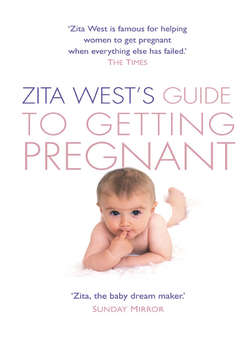Читать книгу Zita West’s Guide to Getting Pregnant - Zita WEST, Zita West - Страница 14
If You Are Just Starting Out
ОглавлениеCouples in this place tend to be at the end of their twenties or in their early thirties. In many cases the woman has come off the Pill and has no idea what her normal fertility cycle is. It is worth saying here that I don’t hold with the belief that a woman shouldn’t try to conceive when she first comes off the Pill. The research shows that a woman actually has much more chance of conceiving when she first comes off the Pill. Very often, however, women rely on ovulation kits since they don’t yet know how to work out their most fertile time. Ovulation kits are fine, but need to be used in conjunction with a knowledge of your cycle. A good biology lesson, as given in Part 1 of this book, removes the element of panic and can put you on the right track. Very often all you need is a fertility awareness session to get you to understand your individual cycle.
At our clinic we also make an assessment of how long a couple have been trying based on age and how often they are having sex, and also give them guidelines for further medical tests they may need alongside the treatments we suggest. At this stage, as far as we know there is no reason why the couple should not get pregnant. Detailed questions can help to pinpoint any lifestyle or nutritional changes that need to be made to enhance fertility, as well as integrating other therapies that might be helpful such as nutrition, acupuncture or hypnotherapy. It might be advantageous to lose some weight, to get your cycle regular using acupuncture, or to assess any emotional issues. Often these quite simple measures make all the difference, and I have seen case after case of straightforward conception in couples who have been trying for some years, and failing, just because of some basic misconceptions that can be readily corrected.
Men are just as important, even in these apparently straightforward cases. If a couple have visited their GP, the man has often had a semen analysis, but seldom understands the implications of the results – not least if they are apparently ‘normal’. Not only that, but often semen analyses are done, not in a laboratory, but in a fertility unit and just given a quick check. This is not adequate. A semen analysis should be done under laboratory conditions, assessed by experts and subject to a full analysis, which may include DNA fragmentation (see page 287) and prostatic massage (see page 277) as part of a full sexual health screen. Often a sub-clinical infection with no discernible symptoms is detected that requires antibiotic treatment. Only when there has been an adequate analysis, with the proper explanations, is the man likely to take the steps necessary to improve his sperm quality.
